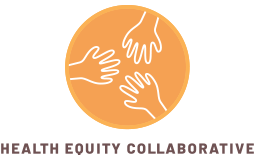12 Apr Advocating for Change: New Health Equity Guidelines for the 118th Congress and Biden Administration
Last week, the Health Equity Collaborative (HEC), united 51 national, public health, patient advocacy, civil rights, and multicultural organizations to deliver an open letter to the 118th Congress and Biden Administration outlining guidelines for advancing health equity.
This letter is the latest iteration of an ongoing effort by HEC to raise awareness of healthy equity challenges to Congress during National Minority Health Month. Previous letters have sent to the 116th and 117th Congresses.
The guidelines offer healthcare stakeholders a shared foundation on which to build productive policy discussions about confronting health disparities. Eight topline priorities are outlined in the letter:
-
-
-
- Confront the Rising Cost of Healthcare
- Improve Access to Quality Healthcare Among Vulnerable Populations
- Support Breakthrough Medical Technologies and Innovation
- Reduce Health Disparities
- Modernize Value-Based Treatment and Clinical Care
- Address the Underrepresentation of Diverse Communities in Clinical Trials and Data Collection
- Promote a Diverse Healthcare Workforce
- Improve Access to Addiction Care and Safe Medicines
-
-
Among diverse populations, disparities in health and well-being have long been the norm in the United States. Inequities in healthcare access and outcomes vary dramatically based on education, ethnicity, income, gender, employment status, and other social determinants of health.
Diverse communities experience higher rates of poor health and disease for a variety of health conditions. For example:
-
-
- African Americans are generally at higher risk for hearts diseases, stroke and cancer.[1]
- Hispanic Americans disproportionately suffer from type 2 diabetes and congenital heart disease.[2]
- Asian Americans have high prevalence for several conditions including cervical cancer, sickle cell disease, and hepatitis B.[3]
- The LGBTQ+ community is at higher risk for substance use, cardiovascular diseases and sexually transmitted diseases (STDs) and are more likely to receive lack of quality care due to stigma than the general population. [4]
-
In addition to these community specific challenges, more and more U.S. adults are having trouble affording healthcare services. Higher health costs are disproportionately impacting uninsured, low-income patients and Black and Hispanic communities.[5] Barriers to healthcare access are posing challenges as well. With the end of the COVID-19, between 5 million and 14 million people will lose Medicaid coverage and the burdens introduced because of this change are expected to disproportionately impact communities of color. [6], [7]
To address these disparities, policymakers, health providers, businesses, and community organizations must take an all-hands-on-deck approach to improving health equity. Achieving a productive dialogue around these issues can be difficult. It requires acknowledgement and respect for different viewpoints and experiences. By establishing a set of shared principles different communities can mobilize around, HEC’s health equity guidelines help provide a roadmap for improving the health and vitality of populations that have traditionally been left behind.
Our hope is that all healthcare stakeholders will use these guidelines to realize positive change.
[1] https://www.minorityhealth.hhs.gov/omh/browse.aspx?lvl=3&lvlid=61
[2] https://www.ncbi.nlm.nih.gov/pmc/articles/PMC8308310/
[3] https://www.nimhd.nih.gov/news-events/features/training-workforce-dev/center-asian-health.html
[4] https://www.ncbi.nlm.nih.gov/pmc/articles/PMC5478215/
[5] https://www.kff.org/health-costs/issue-brief/americans-challenges-with-health-care-costs/
[6] https://www.kff.org/medicaid/issue-brief/10-things-to-know-about-the-unwinding-of-the-medicaid-continuous-enrollment-provision/
[7] https://www.commonwealthfund.org/publications/issue-briefs/2023/mar/inequities-coverage-access-black-hispanic-adults


